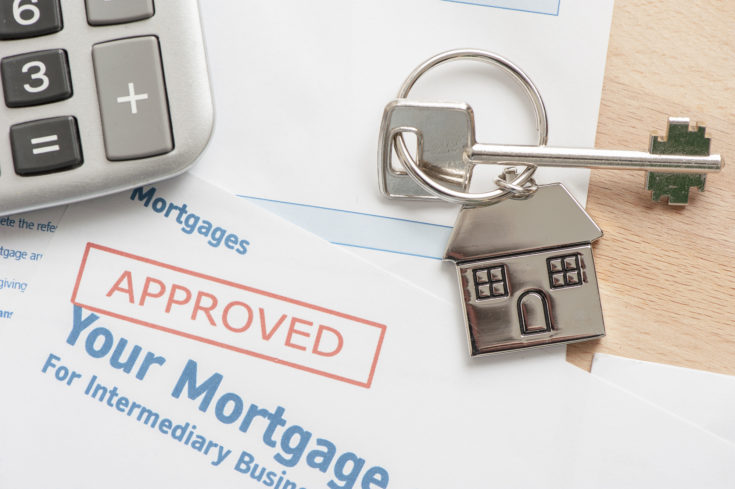Disclosure: This post may contain affiliate links, meaning we get a commission if you decide to make a purchase through our links, at no cost to you. Please read our disclosure for more info.
Prospective home buyers, this is the post for you.
If you’ve been asking yourself, “how does a mortgage work?”, then you’re either wealthy enough to buy a home outright or you’ve got some learning to do. Today, we’re going to teach you a little bit about the mortgage process so you can better understand where your money is going.

Almost all home buyers, when they start looking for properties, are thinking about their mortgage because that’s the only way they can afford a house. Like all long-term loans, however, you need to be careful about the terms, length, and interest rate before you sign.
In This Post:
How Does a Mortgage Work?
Not many people have hundreds of thousands of dollars in their savings, ready to shell out on a piece of property, so they apply for a mortgage through the bank or another lender, like Loanpal.
Generally, you’d come up with a down payment for the home, which would be anywhere from 5% to 20% of the total cost of the home. The rest is paid with your mortgage, which you, in turn, pay off over a certain number of years. The terms of your mortgage will depend on numerous factors.
Because the house is used as collateral in this type of loan, if you neglect your mortgage payments, the bank could foreclose on it.
The Parts of a Mortgage
There’s a lot of paperwork that comes with applying for a mortgage. The most important parts that you’ll have to sign are the promissory note and the deed of trust.
- The promissory note goes over how you’ll repay the loan, detailing things like the interest rate, the loan amount, the term or length of the loan, and the principal.
- A deed of trust is included if there’s a trustee that has been added to your mortgage, which is legal in some states. Most mortgages are just between the two parties, however: the borrower and the lender.
Paying Off Your Mortgage
Do some budgeting and work with your lender to figure out if you should be going for a fixed-rate or adjustable-rate loan and how many years you want the term to last.
Fixed-rate loans have the same interest rate for the duration of the loan, while adjustable-rate loans are tied to an index and margin. When the index moves, your interest rate increases or decreases. Most people prefer fixed-rate loans because it’s much easier to budget when you know how much your mortgage is every month.
Your mortgage can last anywhere from 10-15 years, all the way up to 40 years. Obviously, a short-term loan means you’ll be paying less interest, but long-term ones provide the lowest monthly payments.
Get the Best Terms
Before you start shopping for your dream home, it’s a good idea to sit down and figure out what kind of mortgage is going to be best for you. It’s important to answer the question, “how does a mortgage work?”, but it’s equally important to understand your own financial situation as well.
Get the right mortgage terms from the right lender and find your dream home ASAP.
If you enjoyed this post, come back for more on finance and technology.
Consider Mortgage Insurance
Many people have no idea what mortgage insurance is. Do you?
Mortgage Insurance is almost exactly, what an individual would expect it to be. It’s insurance that pays a mortgage in response to a specific life-altering event (unemployment, disability, or even death). The next logical question is: “Is it for me?” To answer that question we have to examine the cost of mortgage protection insurance versus the benefits.
The cost of Mortgage Insurance is not 100% cut and dry. Depending on which company you select to cover said mortgage. The average cost of an insured mortgage, though, runs between 1-2% of the total cost of the mortgage per year. Initially that may seem like a considerable sum, but it’s typically broken up over a 12 month payment plan that coincides with the repayment of the loan, and usually goes down after a few years. If an individual had a $125,000 loan, they could expect the monthly cost of their loan to be increased by $104-$208 per month.
If the cost of the insurance is more than an individual can afford then it provides little benefit, but the peace of mind in knowing that even death can’t deny your family their home very much so seems worth it.
